We’re delighted to offer a selection of latest releases from our core subjects of Anthropology, Cultural Studies, History, Medical Anthropology and Mobility Studies, along with our New in Paperback titles.
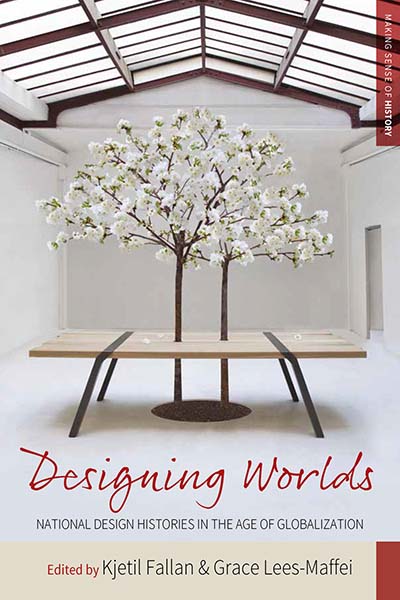 DESIGNING WORLDS
DESIGNING WORLDS
National Design Histories in an Age of Globalization
Edited by Kjetil Fallan and Grace Lees-Maffei
Volume 24, Making Sense of History
“This is a lively, spirited, and imaginative volume whose editors have assembled an impressive range of contributions. It is likely to be embraced not just within design history but also by scholars working in comparative history, art history, spatial theory, and material culture.”· Peter McNeil, University of Technology, Sydney
From consumer products to architecture to advertising to digital technology, design is an undeniably global phenomenon. Yet despite their professed transnational perspective, historical studies of design have all too often succumbed to a bias toward Western, industrialized nations. This diverse but rigorously curated collection recalibrates our understanding of design history, reassessing regional and national cultures while situating them within an international context. Here, contributors from five continents offer nuanced studies that range from South Africa to the Czech Republic, all the while sensitive to the complexities of local variation and the role of nation-states in identity construction.
Read Introduction: National Design Histories in an Age of Globalization
 NARRATIVES IN MOTION
NARRATIVES IN MOTION
Journalism and Modernist Events in 1920s Portugal
Luís Trindade
Volume 15, Remapping Cultural History
“This is an outstanding book and a superlative example of cultural studies done at its best. Luís Trindade develops a sophisticated argument with a clarity of expression that makes this one of the most important works in the field to date.” · Phillip Rothwell, University of Oxford
Interwar Portugal was in many ways a microcosm of Europe’s encounter with modernity: reshaped by industrialization, urban growth, and the antagonism between liberalism and authoritarianism, it also witnessed new forms of media and mass culture that transformed daily life. This fascinating study of newspapers in 1920s Portugal explores how the new “modernist reportage” embodied the spirit of the era while mediating some of its most spectacular episodes, from political upheavals to lurid crimes of passion. In the process, Luís Trindade illuminates the twofold nature of that journalism—both historical account and material object, it epitomized a distinctly modern entanglement of narrative and event.
Read Chapter 1. Newspapers and Modernist Events
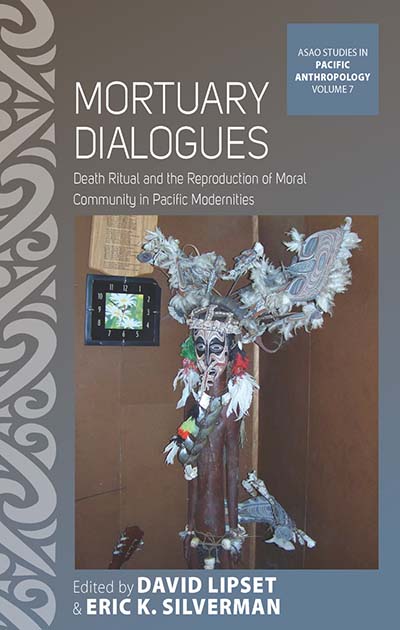 MORTUARY DIALOGUES
MORTUARY DIALOGUES
Death Ritual and the Reproduction of Moral Community in Pacific Modernities
Edited by David Lipset and Eric K. Silverman
Foreword by Shirley Lindenbaum
Volume 7, ASAO Studies in Pacific Anthropology
“This book is notable for its wealth of ethnographic data on mortuary practices in very different parts of a changing Pacific, as well as for the critique running through it that reminds us that Hertz’s model is an idealization—both emic and etic—from which the actual practice departs into varying degrees of ambivalence.” · Roger Lohmann, Trent University
Mortuary Dialogues presents fresh perspectives on death and mourning across the Pacific Islands. Through a set of rich ethnographies, the book examines how funerals and death rituals give rise to discourse and debate about sustaining moral personhood and community amid modernity and its enormous transformations. The book’s key concept, “mortuary dialogue,” describes the different genres of talk and expressive culture through which people struggle to restore individual and collective order in the aftermath of death in the contemporary Pacific.
Read Introduction: Mortuary Ritual, Modern Social Theory and the Historical Moment in Pacific Modernity
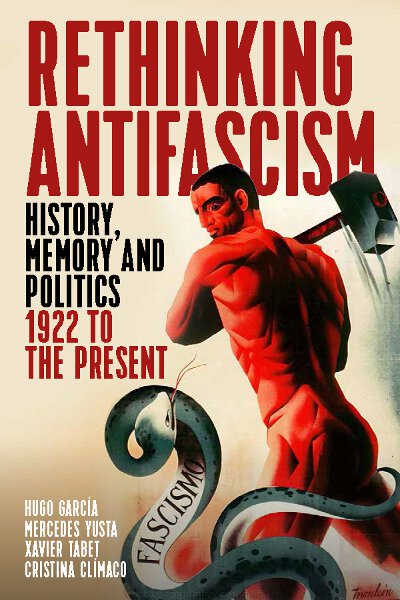 RETHINKING ANTIFASCISM
RETHINKING ANTIFASCISM
History, Memory and Politics, 1922 to the Present
Edited by Hugo García, Mercedes Yusta, Xavier Tabet, and Cristina Clímaco
“Rethinking Antifascism does a commendable job of offering, for the first time in English, a panoramic view of the antifascist experience that resists the temptation to elaborate an ‘antifascist minimum,’ and instead embraces its multitude of individual and international varieties.” · David Ward, Wellesley College
Bringing together leading scholars from a range of nations, Rethinking Antifascism provides a fascinating exploration of one of the most vibrant sub-disciplines within recent historiography. Through case studies that exemplify the field’s breadth and sophistication, it examines antifascism in two distinct realms: after surveying the movement’s remarkable diversity across nations and political cultures up to 1945, the volume assesses its postwar political and ideological salience, from its incorporation into Soviet state doctrine to its radical questioning by historians and politicians. Avoiding both heroic narratives and reflexive revisionism, these contributions offer nuanced perspectives on a movement that helped to shape the postwar world.
Read Introduction: Beyond Revisionism: Rethinking Antifascism in the Twenty-First Century
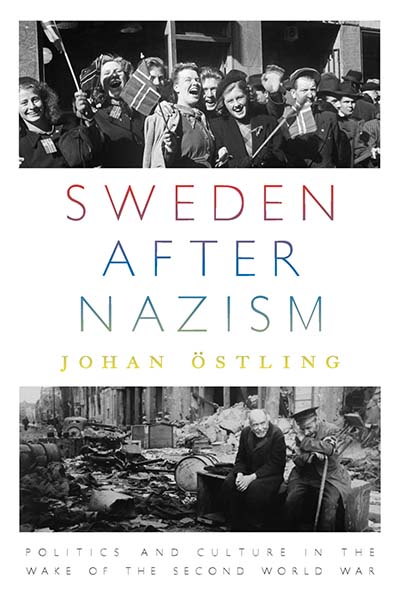 SWEDEN AFTER NAZISM
SWEDEN AFTER NAZISM
Politics and Culture in the Wake of the Second World War
Johan Östling
Translated by Peter Graves
“This study makes a generous contribution to our understanding of segments of Sweden’s intellectual and political postwar response to the catastrophe of Nazism and, with it, Europe more generally today.” · The American Historical Review
As a nominally neutral power during the Second World War, Sweden in the early postwar era has received comparatively little attention from historians. Nonetheless, as this definitive study shows, the war—and particularly the specter of Nazism—changed Swedish society profoundly. Prior to 1939, many Swedes shared an unmistakable affinity for German culture, and even after the outbreak of hostilities there remained prominent apologists for the Third Reich. After the Allied victory, however, Swedish intellectuals reframed Nazism as a discredited, distinctively German phenomenon rooted in militarism and Romanticism. Accordingly, Swedes’ self-conception underwent a dramatic reformulation. From this interplay of suppressed traditions and bright dreams for the future, postwar Sweden emerged.
Read Prologue: A Sword of Damocles over the Age in Which We Live
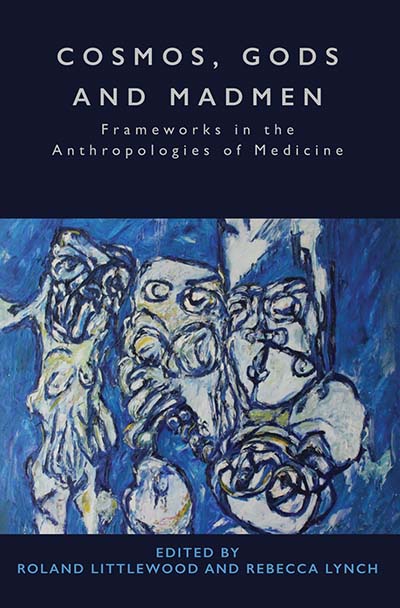 COSMOS, GODS AND MADMEN
COSMOS, GODS AND MADMEN
Frameworks in the Anthropologies of Medicine
Edited by Roland Littlewood and Rebecca Lynch
“The introduction to this book is very well-written and lays out the topic and scope clearly… The essays have been collected carefully and offer much to the study of religion and healing” · Stefan Ecks, University of Edinburgh
The social anthropology of sickness and health has always been concerned with religious cosmologies: how societies make sense of such issues as prediction and control of misfortune and fate; the malevolence of others; the benevolence (or otherwise) of the mystical world; local understanding and explanations of the natural and ultra-human worlds. This volume presents differing categorizations and conflicts that occur as people seek to make sense of suffering and their experiences. Cosmologies, whether incorporating the divine or as purely secular, lead us to interpret human action and the human constitution, its ills and its healing and, in particular, ways which determine and limit our very possibilities.
Read Introduction: Divinity, Disease, Distress
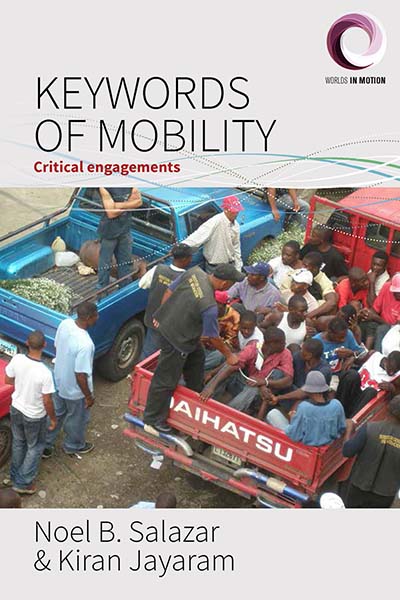 1st Volume in a NEW Series!
1st Volume in a NEW Series!
KEYWORDS OF MOBILITY
Critical Engagements
Edited by Noel B. Salazar and Kiran Jayaram
“This book is very enlightening, covering areas of thought and research which are at present clearly on a lively frontier of scholarship… The editors are well placed to take on the task of organizing and introducing this topic – as notions of “mobility” have become increasingly prominent in recent anthropology. Noel B. Salazar has an overview of the field which may well be unmatched in anthropology.” · Ulf Hannerz, Stockholm University
Scholars from various disciplines have used key concepts to grasp mobilities, but as of yet, a working vocabulary of these has not been fully developed. Given this context and inspired in part by Raymond Williams’ Keywords (1976), this edited volume presents contributions that critically analyze mobility-related keywords: capital, cosmopolitanism, freedom, gender, immobility, infrastructure, motility, and regime. Each chapter provides an historical context, a critical analysis of how the keyword has been used in relation to mobility, and a conclusion that proposes future usage or research.
Read Introduction: Keywords of Mobility: A Critical Introduction
_________________________________________________________________________
New in Paperback:
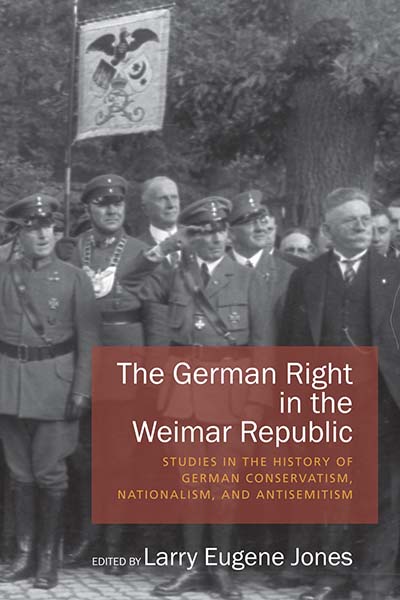 THE GERMAN RIGHT IN THE WEIMAR REPUBLIC
THE GERMAN RIGHT IN THE WEIMAR REPUBLIC
Studies in the History of German Conservatism, Nationalism, and Antisemitism
Edited by Larry Eugene Jones
“The strength of this collection is its engagement with this ideological and institutional diversity… Though not intended for general readers (who will find relatively little about Hitler and the Nazis here), specialists will benefit from this volume’s exploration of the ideas that shaped the German Right and the ways that their spokesmen negotiated their ideological differences during a period of profound societal crisis.” · Choice
The German Right in the Weimar Republic examines the role that the German Right played in the destabilization and overthrow of the Weimar Republic, with particular emphasis on the political and organizational history of Rightist groups as well as on the many permutations of right-wing ideology during the period.
Read Introduction: The German Right in the Weimar Republic: New Directions, New Insights, New Challenges
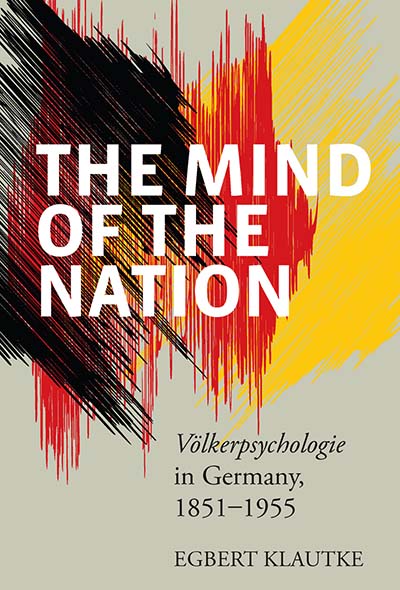 THE MIND OF THE NATION
THE MIND OF THE NATION
Völkerpsychologie in Germany, 1851-1955
Egbert Klautke
“Klautke charts the historical and systematic differences between the concepts of Völkerpsychologie over a century in a book of fewer than 200 pages. Readers will consult with profit this short, but important history of ideas, science, and culture, which deals with the arguments and topics relating to Völkerpsychologie.” · German Historical Institute London Bulletin
Völkerpsychologie played an important role in establishing the social sciences via the works of such scholars as Georg Simmel, Emile Durkheim, Ernest Renan, Franz Boas, and Werner Sombart. In Germany, the intellectual history of “folk psychology” was represented by Moritz Lazarus, Heymann Steinthal, Wilhelm Wundt and Willy Hellpach. This book follows the invention of the discipline in the nineteenth century, its rise around the turn of the century and its ultimate demise after the Second World War. In addition, it shows that despite the repudiation of “folk psychology” and its failed institutionalization, the discipline remains relevant as a precursor of contemporary studies of “national identity.”
Read Introduction: Völkerpsychologie in Germany
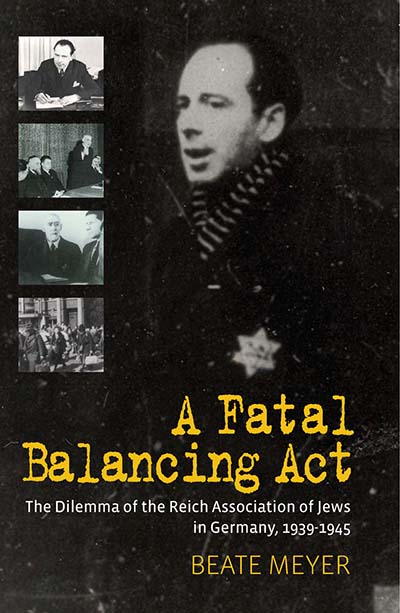 A FATAL BALANCING ACT
A FATAL BALANCING ACT
The Dilemma of the Reich Association of Jews in Germany, 1939-1945
Beate Meyer
Translated from the German by William Templer
“One of the more remarkable things about Meyer’s study is her almost total lack of criticism of the various Jewish leaders in the RJD and the RR.… Meyer sees the work of the RJD and the RR in a very different light. She argues that these Jewish leaders worked continuously through various phases of Nazi Germany’s ever-changing policies on the “Jewish Question” to find ways to ameliorate such policies…a masterful study of a phase of the Shoah that needs further exploration.” · Holocaust and Genocide Studies
In 1939 all German Jews had to become members of a newly founded Reich Association. The Jewish functionaries of this organization were faced with circumstances and events that forced them to walk a fine line between responsible action and collaboration. They had hoped to support mass emigration, mitigate the consequences of the anti-Jewish measures, and take care of the remaining community. When the Nazis forbade emigration and started mass deportations in 1941, the functionaries decided to cooperate to prevent the “worst.” In choosing to cooperate, they came into direct opposition with the interests of their members, who were then deported. In June 1943 all unprotected Jews were deported along with their representatives, and the so-called intermediaries supplied the rest of the community, which consisted of Jews living in mixed marriages. The study deals with the tasks of these men, the fate of the Jews in mixed marriages, and what happened to the survivors after the war.
Read Introduction
